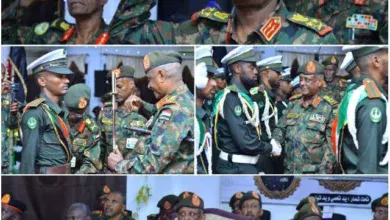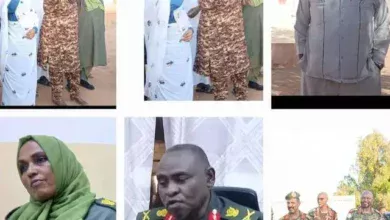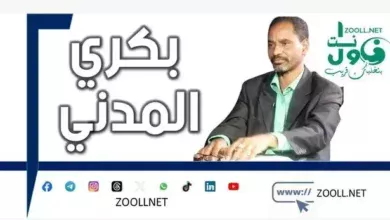The Concept of State 56 – A Whale's Spine – ✍️ Yasser Muhammad Mahmoud Al-Bishr

*After the outbreak of the war in Sudan, there was much talk about the dismantling of the State of 56, and it can be said that the State of 56 means the Republic of Sudan, which gained independence in 1956. As for the political meaning that is reserved for talking about it, what is meant by the State of 56 is the Nilotic Sudan and its inhabitants along what is called the Hamdi Triangle located in the space between Dongola, Al-Abyad and Sennar, or more What is correctly meant is the State of Jellaba and the Jellaba. This refers to the inhabitants of the north of the Nile and the northern states, who are accused of monopolizing the power of Sudan from independence until today and seizing the wealth of Sudan. at the expense of other states. This accusation continues to direct its arrows at the people of North Nile at the time when the claim was made with the declaration of independence in the Parliament on December 19, 1959, by two people from the West. Sudan, it was they who presented the proposal for the independence of the Sudan, Dabka from Baggara district in Darfur, and Councilor Jumaa Sahl from Kordofan, who supported Dabke's proposal, and until now we find that there is a group around which the claim that the culprits of the Parliament of 1953, which demanded independence, wanted to make Dabke and Sahl scapegoats if Britain did not accept the independence of the Sudan*.
*It can be said that the Sudanese left parties were the first to talk about the 1956 state, and they talked about the dialectic of the center and the margin, and they talked about the monopolization of the center at the expense of the margin. However, these voices spoke timidly, and better than raising the issue of the center and the margin, there was Dr. John Garang Dembior, who waged a war against the center that continued for forty years and ended with the secession of South Sudan in 2011. Colonel John Garang talked about drinking coffee in Shendi, and for him, Shendi represented a stronghold of the Jalaba, just as movements are currently taking place with the aim of transferring the war from Khartoum to Shendi. black book prepared by the Sudanese Movement for Justice and Equality, which talks about the imbalance of power and wealth in Sudan and the domination of the jellaba over jobs and ministries in Sudan since the dawn of independence, and calls for the need to eliminate historical injustice. until the process of taking over most of the ministries of the center by marginalized people, such as Al-Tijani Al-Sisi, Abu Garda, Jibril Ibrahim and many others, is filled with them in the memory and there is not enough space to mention it. Forget Lieutenant General Mohamed Hamdan Dagalo, it can be said that Sudan, as a country, has been subjected to the greatest test in its political history after the participation of the supporters of the theory of the margin and the center in the central power*.
*If we assume, for the sake of argument, that the people of the Nile Strip are those who occupied the highest positions in the Sudanese state after independence, and the reason is that the people of the North learned before the people of the margins. They entered schools and taught their children. It is therefore quite natural that they have a better chance of accessing public positions. The people of the Nile did not limit themselves to educating their children, but they became messengers to eliminate ignorance. in all regions of Sudan. If each of the people of the margin asked the same person who came to their house – a teacher, a medical assistant, an administrative officer, a policeman or a railway employee – was there among them an ignorant galabi, or were they educated, each in his field of specialization, and if there was a defect in the jalaba, they knew education before the others*?
*As for the issue of their possession of wealth, the Jellaba experienced expatriation before others. They experienced the path to America before the independence of Sudan, and without you, Sheikh Al-Majid Haj Majid and Sayyid Suleiman, who entered America in 1940, and Al-Siddiq Ibn Al-Gold, and others, tens of thousands of sons of the Jellaba or the North of the Nile. The question remains: Should the people of the North Nile expel the people of the margins from their pastures and farms to put them in schools, while deepening the concept that schools (exterminate) the children of the margins and whoever is brought to school at that time, their children will practice the work of the people of Lot while the sons of the jellaba will practice the educational process without complications. Is this considered education and alienation? Collecting money and building buildings is a crime for which tyrants are held responsible?*.
Half a fork
*The dialectic of the margin and the center, which became the state of 1956, must be discussed in a different way than it is today. This does not deny the existence of some cases of corruption among those who held positions in the state. given the absence of tools for control and accountability. However, not all jalaba are as bad as they are described*.
A quarter of a fork
*You will tell me that (Falqnai), but it is the truth that must be faced with courage*.






